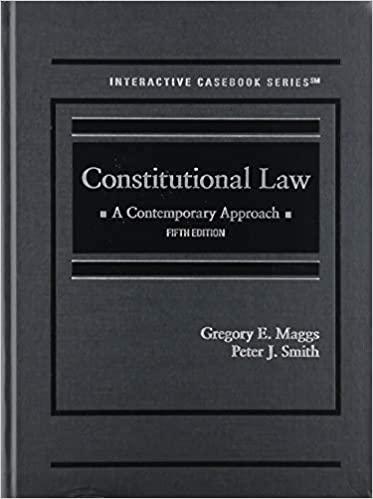Question
In response to an increasing number of motor-vehicle accidents across the nation, the U.S. Congress enacts a federal statute, titled the Don't Text and Drive
In response to an increasing number of motor-vehicle accidents across the nation, the U.S. Congress enacts a federal statute, titled the Don't Text and Drive Act (the Act). The senate report for the Act attributes the increase in motor-vehicle accidents to a rise in the number of drivers, particularly teenagers, who send and receive text messages while driving. The senate report nds that these accidents cost billions of dollars annually in economic losses, personal injury, and overall societal harm, and that they interfere with the well-being and educational prospects of their teenager victims. The senate report further asserts that this problem requires a national solution, because states have failed to uniformly prohibit texting while driving.
The Act, as explained below, conditions certain federal funding on the states' prohibiting texting while driving, an offense dened in the Act as "operating a motor vehicle while manually typing or entering multiple letters, numbers, symbols, or other characters into a wireless communications device." Under the Act, states have the discretion to impose civil or criminal penalties on violators.
Any state that does not prohibit texting while driving will lose 15 percent of the federal funds it receives to improve the quality of its public K-12 education. The total amount that each state would lose constitutes approximately 2 percent of an average state's overall budget.
Is the Act constitutional under the Spending Clause? Explain.
Step by Step Solution
There are 3 Steps involved in it
Step: 1

Get Instant Access to Expert-Tailored Solutions
See step-by-step solutions with expert insights and AI powered tools for academic success
Step: 2

Step: 3

Ace Your Homework with AI
Get the answers you need in no time with our AI-driven, step-by-step assistance
Get Started


